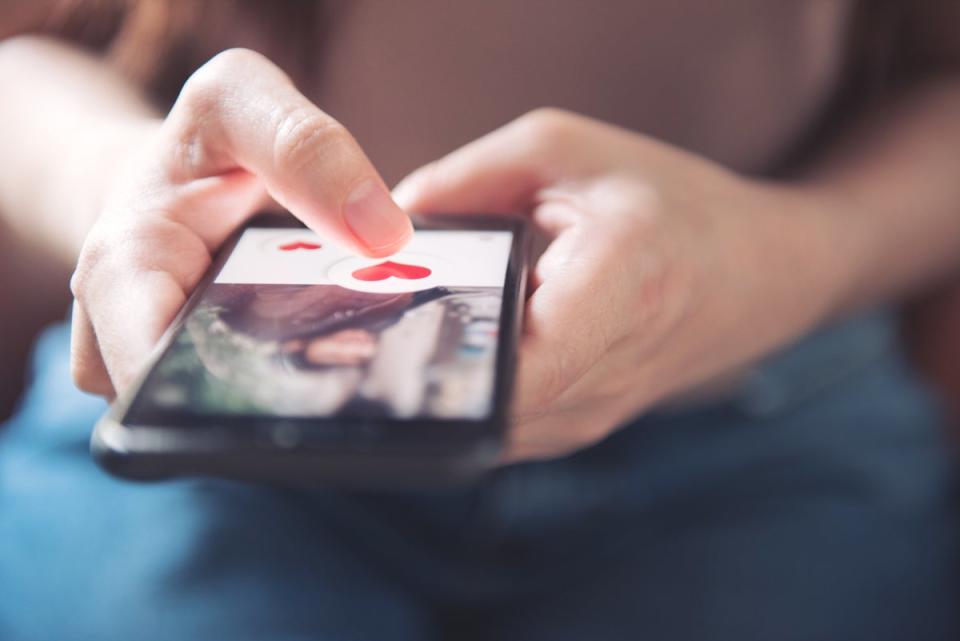Sex predators using dating apps as ‘hunting grounds’ for vulnerable victims, new research shows

Violent sexual predators are using dating apps as “hunting grounds” where they find it easier to target vulnerable victims, according to new research.
Researchers at Brigham Young University (BYU) analysed Utah sexual assault victims’ records between 2017 and 2020.
BYU nursing professor Dr Julie Valentine said their findings were “incredibly concerning”.
Research showed that 14 per cent of the 1,968 rapes committed by acquaintances occurred after a meet-up arranged through a dating app.
These attacks were also found to be more violent with a third of victims being strangled and a quarter suffering breast injuries.
Dr Valentine explained the intent of their research: “We’d started to see an increase of victims reporting being raped after meeting someone on a dating app, and we wanted to know if rapes facilitated through dating apps differed from other acquaintance rapes.
“They are indeed very different,” she concluded.
In the study, published in the Journal of Interpersonal Violence, 47 per cent of the victims of acquaintance rape unrelated to dating apps disclosed a mental illness.
But this number rose to 60 per cent among those who were assaulted from an acquaintance met through an app.
College students were also more likely to be victims of dating app-facilitated assaults, and male victims were nearly twice as common among app-related assaults as among other acquaintance assaults.
The perpetrators in dating-app-facilitated rapes seemed to be unusually violent, with the attacks producing more victim injuries than other acquaintance rapes.
A quarter of the victims had breast injuries and about 33 per cent of the victims reported being strangled, while 22 percent of victims who were not meeting perpetrators for the first time through an app reported strangulation.
“In a dating app, people can shape themselves however they want to appeal to vulnerable victims,” Dr Valentine said, adding, “Those with mental illnesses like depression may be more susceptible to a predator who might, for example, flatter them profusely and persuade them to meet in person.”
Prior research shows that individuals with a mental illness are already more likely to be sexually assaulted.
One of the causes, she explained, was the lack of “vetting” involved in the use of dating apps.
She said: “It used to be that people would meet through mutual friends or at work or school, and there was a degree of vetting that went in place before dating. Dating apps have completely taken away that process.”
She also said that current safety measures in dating apps – a written set of guidelines for safe dating – are inadequate because it places the burden of safety on potential victims.
Victims might blame themselves for being preyed upon as they did not follow the guidelines to the letter and their self-blame could dissuade them from reporting the assault.
Instead, the authors recommend that dating app companies improve their safety standards.
Dr Valentine said: “Dating app companies can increase artificial intelligence to identify perpetrators, have stricter identification requirements for users, run criminal history searches at no extra charge and connect with other companies to ensure that perpetrators aren’t just jumping from one app to another.
“They can also improve ways for victims to report assaults and provide more support services for victims.”
Her team at BYU are already collaborating with dating app companies and legislators to draft a bill in Utah, called Online Dating Safety Requirements.
They believe the bill has a good chance of passing and hope other states in the US will follow suit.
Dr Valentine said: “What I don’t want people to take from the study is that we shouldn’t use dating apps – they’re the number-one way that happy couples meet.
“We want to preserve that but increase the safety.”
Reporting from SWNS
If you have been raped or sexually assaulted, you can contact your nearest Rape Crisis organisation for specialist, independent and confidential support. For more information, visit their website here.

 money
money 